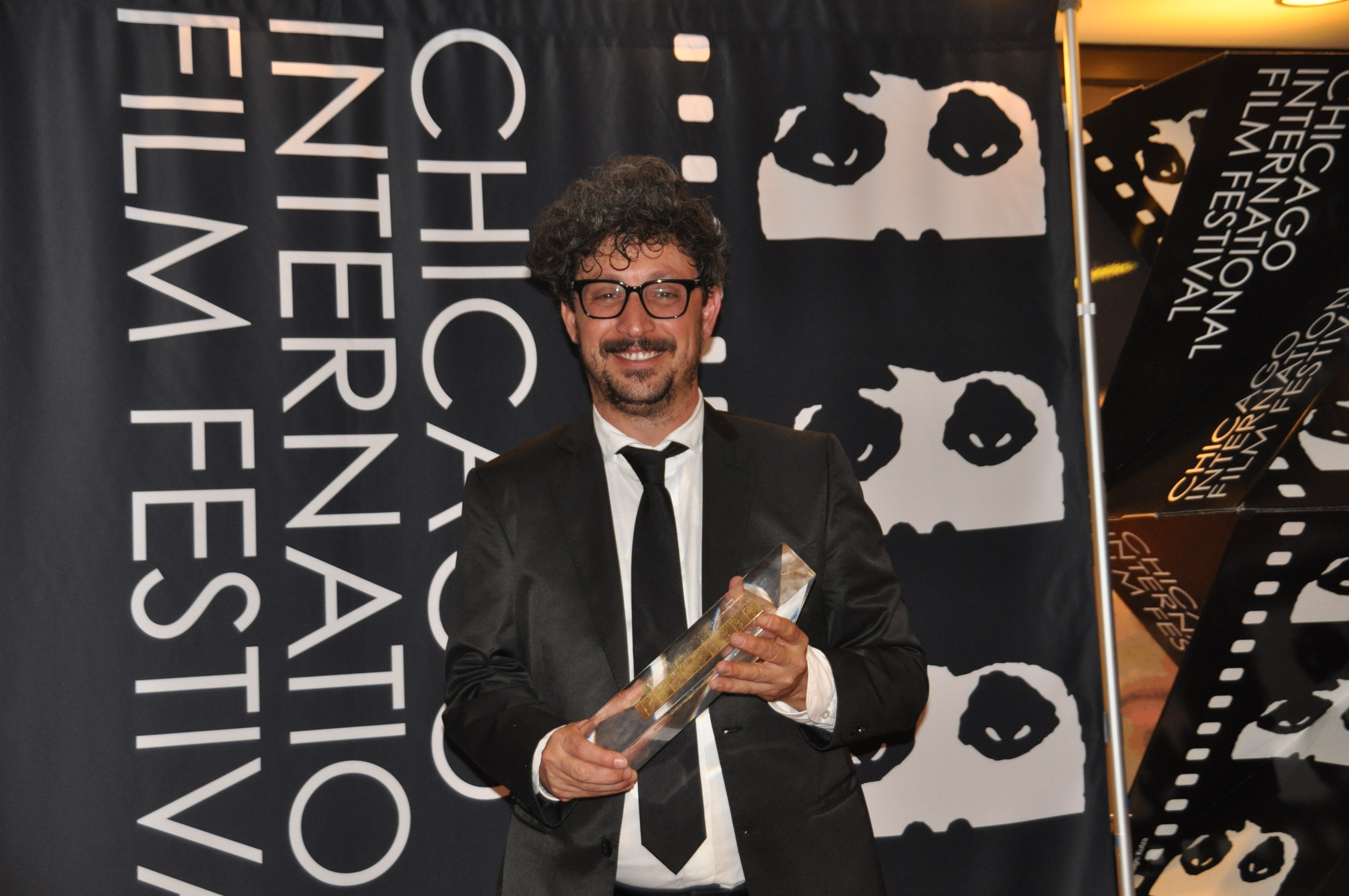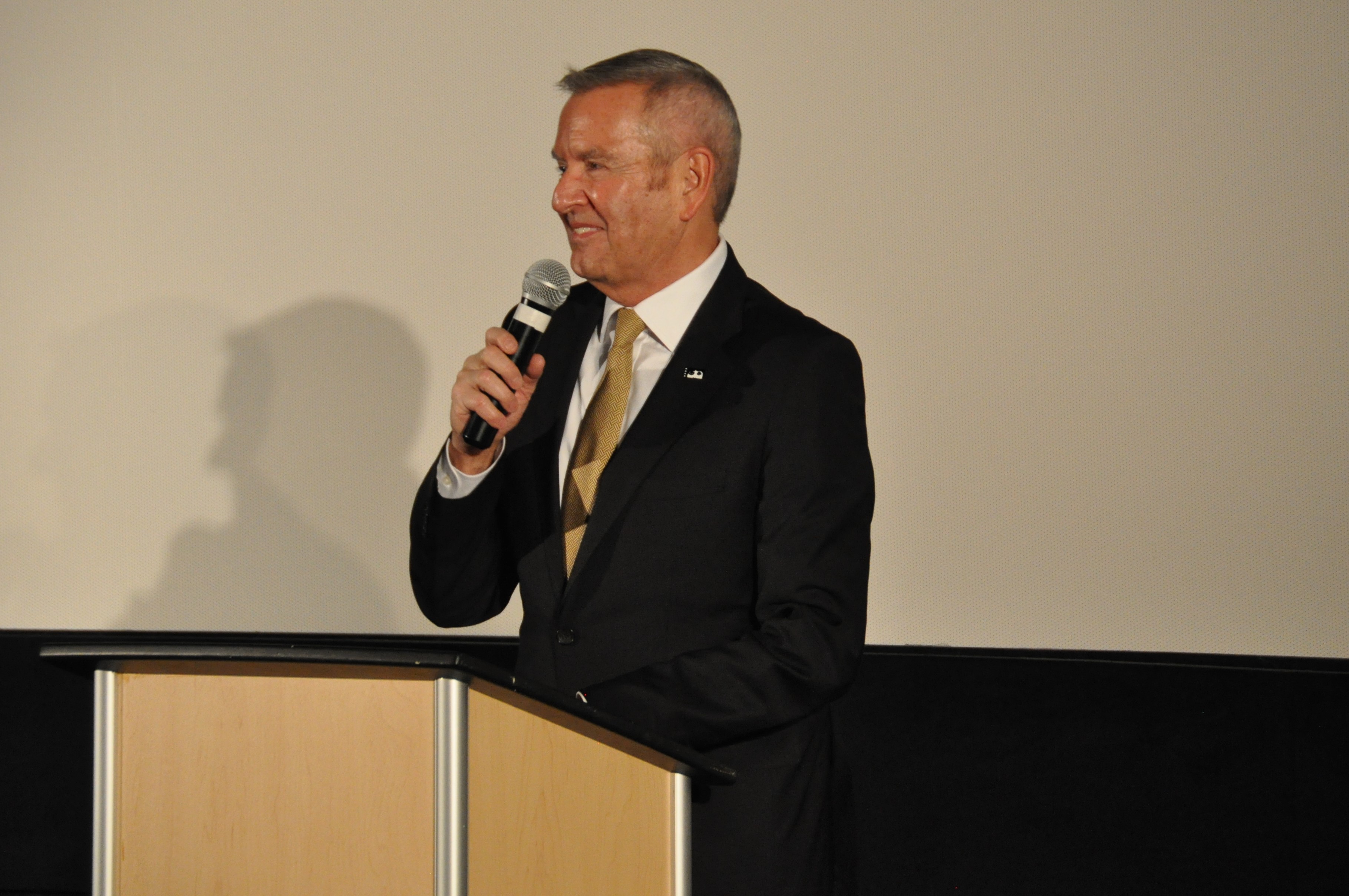
Introduction: When a black ops soldier is set up for the fall, she seeks payback from the betrayal, looking to find answers and revenge along the way. Haywire is a 2012 action film directed by Steven Soderbergh. It features an ensemble cast with newcomer Gina Carano, Antonio Banderas, Michael Douglas, Ewan McGregor, Bill Paxton, Michael Angarano, Channing Tatum and Michael Fassbender.
Review: There is a scene about midway through the film where Michael Fassbender’s character Paul while sitting across a table from Gina Carano’s character Mallory, noticing her slight awkwardness states, “A bit out of your element?” Carano doesn’t answer, she just simply smiles. Fassbender asks the question again in the form of an observation and once again Carano gives no answer, but instead this time smiles while taking a sip of wine. Instead of furthering the conversation along, Fassbender finishes his drink, says “I’m running dry” begins to stand up and Carano follows him to the bar to refresh his drink.
Haywire plays out somewhat like that scene. The pacing is not methodical but slow in it’s own awkwardness, smiles at you in a flirtatious manner through its action and stirs you along just enough with its supporting cast. The story is like a half empty glass waiting to be filled, it never reaches the top, at times has enough potential but more often heads towards the emptiness of that glass. So in that sense you want the refill because you have to stay for approximately 90 minutes. By going to the bar it’s your way to escape both the soon to be dryness of your drink and the dryness of the dialogue at hand. Your company is new and you give it the benefit of the doubt. So how the evening plays out is the camera lens looking on through its own perspective. Capturing every moment as it happens, in retrospect, in memory or in hints at how things will turn out with your own observations and perhaps expectations in tow.
For me, this film oddly enough starts and ends with Soderbergh’s decision to alter Gina Carano’s voice in Haywire. That’s not quite Gina you hear, but a digitized representation of perhaps what Mallory Kane sounds like in Soderbergh’s head. It is anomalous to his own decision to create Haywire which was developed around and for Gina Carano. Not necessarily to make a star out of her, but for Soderbergh to do the action film he had in mind, something which promoted a sense of realism. With Gina he saw someone who could bring that idea to life, carry it through from a physical reality standpoint and represent it well. However, the decision to alter Carano’s voice was a really distracting one. Simply due to the fact it carries throughout the entire film and it’s never really her we see on screen, or in this case actually hear. She’s a muse to the role of Soderbergh’s character of Mallory Kane.
You openly critique her voice because the decision to alter her voice is a conscious one. Half the time her voice feels heavily processed while the other half she sounds normal and even then that is unsure. Her tone is flat and heavy yet something real hides behind all the distortion. Was the voice behind the voice her? Is that how she sounds like? There is never enough to make it out and throughout the movie there never is. After the movie, I actually found myself looking up various videos on YouTube, from fight interviews to her genuine excitement in promoting Haywire. Just to hear, consistently, how her actual voice sounds like in a continuous dialogue manner. I can’t help but be reminded of ‘Hercules in New York’ (1969) when Arnold Schwarzenegger was dubbed due to this his thick accent. In that case it was a concern of audiences understanding Arnold and here it is definitely something different. In this case, it’s not how she sounds but how someone has deliberately decided to make her sound.
It’s almost like Soderbergh performed voice surgery to remove any notion of sex appeal purposefully. Perhaps he was more concerned about the portrayal of Mallory Kane as a character and didn’t want the confusion of a sexy military-esque operative. Which let’s say compare to films such as Salt (2010) or more recently with Columbiana (2011). There is a definite opportunity for Carano to break into the film industry, as a leading female actor in the action genre. Whether she can live up to that idea or if it’s an actual aspiration of hers, that’s something that is unknown. I know what she does in Haywire and she definitely has a presence. The opening scene of the movie is indicative of that as she makes her way into a roadside diner and Soderbergh does a close shot of her face, you see something there with her slight mannerisms and characterization of her role. Then there are the scenes where she kicks ass in a brutalizing manner, the physicality of the role and what she brings.
I don’t believe for a moment her tone is that emotionless even with who her character representation is in the movie. There are too many levels of inconsistency, especially with her interaction with everyone on screen. This isn’t specific to how Carano takes up the role, but the character of Mallory Kane herself and perhaps written. Is that how she reacts and talks to new people she’s never worked with before, her ex-boyfriend/still employer and especially her dad who she obviously holds a great deal of care for? It all sounds the same, the pitch, the tone and her delivery which has a disingenuous feeling due to the voice altering. It’s a character without real characteristics, it’s uncertain and off, which in some ways is consistent with the overall tone and pacing of the film.
Soderbergh explained the reasoning for the voice altering was to have audiences feel that Gina and her character were “two completely different entities.” So perhaps he really wanted to distinguish and sell the audience from something she already is with her beautiful looks and appeal in the world of Mixed Martial Arts (MMA). And instead show us something she could be, as Haywire was in fact again designed and created with her in mind for the lead role. So as you can expect, the movie has these fight scenes where she’s more than capable of pulling them off, that’s what Carano does in real life. But if there is really a want for this contrast, why use Gina as ‘eye candy’ in a specific portion of the film? Why play up the obvious? Is it just by coincidence she’s a pretty operative? It’s this inconsistency which is present in not just how she’s used, but throughout the film itself, this notion of an uneven contrast that you’re left with.
The storyline plays out simple, she’s an agent gone rogue as Ewan McGregor’s character Kenneth claims but much like the other spy espionage films we know there is more to it. As such we follow Carano’s character throughout the film as she tries to solve the mystery of why her once employers are going after her. Revenge in this case isn’t enough, it’s more so about the answers. The action is what you expect. It’s hard hitting and visceral. It’s these scenes where Soderbergh puts down the camera and we have steady shots of the fights in slightly open areas to tight spaces where one must get creative and use their environment to gain the upper hand. It’s something I appreciated about Haywire in respect to all the other action movies we get where the fights are stylized, i.e. the ‘shaky cam’ to make things feel as they have more impact or the sense of real. Rather than just let choreograph speak for itself and let it be a fight unstylized from a cinematography standpoint.
It is one thing Soderbergh does well in this film. The movements, the punches, the kicks, everything is easy to follow due to the straight forward angles. Yet in some ways this cinematography feels almost experimental from him, perhaps in the sense because it’s his first ‘action’ movie. He knows what he sees, but at the same time doesn’t know what to fully do with it. So after the first couple fights, things get too consistent, there isn’t enough variety to make things feel more kinetic like in the ways he applies to the non-fighting scenes. The angles or aerial pans he decides to do for chases, the mundane conversations not so mundane because of how it’s visualized or the perspectives we see from a character standpoint. All of these scenes are done carefully versus the contrast of how the fight scenes are shot. The fights while engaging relate an uncertainty, hampered further at times by inconsistent sound effects to deliver the visceral nature which is present in some scenes but missing in others.
Haywire in some ways reminds me of his last film Contagion (2011) in respect to both its contrast and its cast. Contagion carried a very purposeful micro and macro contrast in its visualization. It’s played through consistently from start to finish. The film also has an ensemble cast where perhaps some people in the audience expected brilliant things. Instead what you got were really consistent and solid performances from experienced actors in a complete but average film. The storyline was enough and the characterizations were great which lent itself to acting that was balanced. With Haywire the storyline is simple, it plays out its explanation like that of Ocean’s Eleven (2001) and its two sequels. Things are told through perspective of where they are currently, how they began, where they’re going and ultimately how it ends.
The action while good becomes a red herring to the film, something you anticipate but also meant in some ways be there to satiate the audience. It’s not one specific thing, but more so a varied inconsistency which ultimately doesn’t become enough to carry Haywire as a whole. Despite the apparent globe-trotting, the pacing throughout the film never reaches a real consistency. Much like the various locales are scene by scene, Carano’s interaction with the cast is the same. The ensemble cast is supporting but the dialogue feels anemic which is masked by the start and stop of the film’s soundtrack to initiate transition. Simply put when the music plays, you know there is no dialogue and the film never allows you to really settle into things because it comes so unexpectedly or irregularly. In Soderbergh’s Ocean’s Eleven (Twelve, Thirteen) movies the music is done in a manner that supports even the film itself. Its plot progressive, it’s cool and dresses those films up. Haywire attempts to do this, but doesn’t follow through in the same accord. The performances of the cast overall are good but we don’t get the same balance because of the inconsistency of Carano. Is it her acting or the voice altering done? It’s something that is uncertain because we don’t ever hear Carano’s actual voice and its own subtleties throughout the film. Maybe in this case it’s the fault of the over-direction of Soderbergh to actually direct how somehow should sound. Or perhaps not directing Carano to give more other than action? Was Carano’s actual characterization vocally better or worse? You never know truthfully. I give Carano the benefit of the doubt, she seems capable and perhaps it will take smaller roles to slowly build her experience up. I do expect her to be typecast to the action genre because of her capabilities. Or maybe this film was or is a one-off for her and in some ways another experiment by Soderbergh.
Haywire is an interesting outing, refreshing at moments, stylistic in others, enjoyable in its cast yet too plain in its delivery. So perhaps in the definitive sense, the title of the film says it all. Hay-wire (n), (1) Mentally confused or erratic; crazy: went haywire over the interminable delays. (2) Not functioning properly; broken.





















